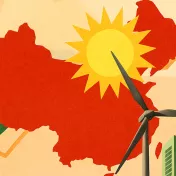The first Indo-German Dialogue on Sustainable Lifestyles during COP 23 in November 2017 in Bonn brought together Indian and German NGO representatives with an interest in sustainable lifestyles. Before discussing the potential of bringing the topic of sustainable lifestyles into the UNFCCC process, a mutually agreeable definition of sustainable lifestyles had to be found.
The predominant definition in mainstream German and Western literature for sustainable lifestyles often concerns mainly the reduction of citizens’ individual footprints. “Bid points” for addressing sustainability in a personal lifestyle are identified as electricity and energy needed for heating and cooling, mobility (including air and automobile), nutrition and consumption as a whole [1]. Such an environmental approach primarily focusses on resource management and usage, technological advancements and new markets. This common limitation in definition of sustainable lifestyles to environmental sustainability means it does not take into consideration societal and economical structures that hinder a transformative change unlocking the high carbon system. Examples for this could be renewable energy, effective insulation systems, highly efficient electronical goods and organic products that are often still more expensive than the unsustainable alternatives. Regarding travel options, flights are often cheaper than trains. Besides different capacities to respond to economic incentives promoting unsustainable options, patterns of overconsumption as well as food and energy waste are common throughout Western societies. Another problem of sustainable lifestyles limited to environmental aspects is the so-called “rebound-effect”, which refers to the fact that people tend to outbalance the CO2 they have reduced in one area with unsustainable actions in another area on the basis of a good conscience or through the money saved.
While the group acknowledged the fact that environmental sustainability is key for sustainable lifestyles, the environmental definition of sustainable lifestyles was seen as not far-reaching enough to underpin the relevance of sustainable lifestyles for societal transformation towards the goals of Agenda 2030. A workable definition should also view the concept of sustainable lifestyles in a broader and more inclusive manner and also take into account the multiple facets of values, cultural norms and traditions, individual and community growth and well-being. Further, the potential of the transformative character should be included.
A more suitable definition of sustainable lifestyles would thus be the “responsible living with our total surrounding and ourselves”, which even goes beyond the UNEP and UNDESA definition:
“A sustainable lifestyle means rethinking our ways of living, how we buy and how we organize our everyday life. It is also about altering how we socialize, exchange, share, educate and build identities. It means transforming our societies and living in harmony with our natural environment. As citizens, at home and at work, many of our choices – on energy use, transport, food, waste, communication and solidarity – contribute towards building sustainable lifestyles.” [2]
In an Indo-German discussion, personal consumption should be contextualized in terms of the different economic status as well as personal needs and aspirations in the two countries. It is by no means denied that beyond survival and meeting the basic needs a certain personal comfort requires a basic level of consumption. But consumption should be ecologically friendly, socially just and allowing for a fair economy: An increasing demand for fair products, a society-wide rejection of overconsumption such as fast-fashion or claims for long-lasting electronic products, could enhance human-rights-based supply chains as well as more environmental-friendly and resource-saving production methods. The more individuals divest from financial institutions that support fossil fuels, the faster the change to an ethical financial market with more resources for e.g. climate adaptation will be advanced.
Through such a holistic perspective, sustainable lifestyles can help to foster a transformation to a system with a fair distribution of access possibilities to resources for present as well as future generations. The reason for this is that a change in lifestyles can lead to a break with unsustainable habits that our current economy is built upon, based on the exploitation of natural and human resources. It can loosen our dependency of fossil fuels through the establishment of new production and consumption forms as well as through the systematically integration of sustainability in ecological, economic and social terms. Also, it allows exploring non-materialistic well-being.
Combining the battle against climate change with sustainable lifestyles that take into considerations the idea of global equity can additionally lead to the unleashing of driving forces, as sustainability is not only a question of an individual reduction of CO2. But instead, it can become a vision that unites people throughout the world; that stands for the formation of new societal norms, identities and innovations with ecological, as well as socio-economic and personal benefits on a larger scale.
A definition of sustainable lifestyles as a “responsible living with our total surrounding and ourselves” could thus not only help to enhance an effective response to climate change, but represents also the chance to connect the fight against climate change with the promotion of global equity.
[1] M. Bilharz (2008): “Key Points” nachhaltigen Konsums, Metropolis-Verlag
[2] Task Force on Sustainable Lifestyles, 2010: Report of the Marrakech Task Force on Sustainable Lifestyles led by the United Nations Environment Programme (UNEP) and the United Nations Department of Economic and Social Affairs (UNDESA)





